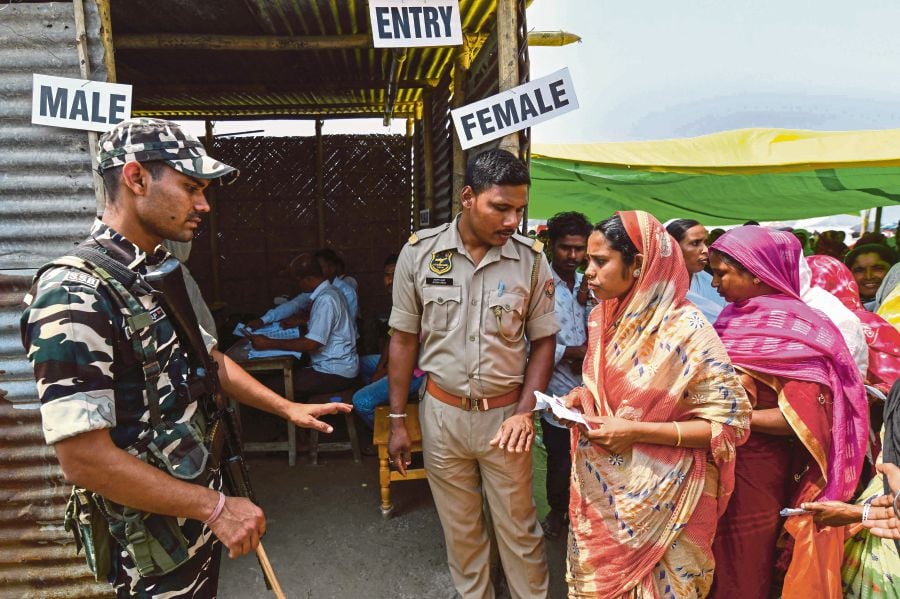TO go back home in eastern India, cast his vote and spend time with his wife and three children would be ideal, said Shafiq Ansari, 37, but he cannot afford to lose wages and so has to keep toiling under the sweltering sun near New Delhi.
Ansari is far from alone. Many millions of migrant workers in India face a similar dilemma as voting takes place in the world's biggest election, with nearly one billion people eligible to vote until June 1.
Results are due by June 4, with Prime Minister Narendra Modi predicted to win a rare third term.
For those like Ansari, a road building labourer from Jharkhand state earning 600 rupees (US$7) a day in the satellite city of Noida, the costs of voting are high, from leave without pay, threats of wage theft and job loss to lofty travel expenses, including the expected gifts for family members.
"If I could get free (train) tickets and paid leave, I would go. But since that is not happening, I will stay and hope for the best," said Ansari.
"We are here out of compulsion. It is just for work ... because we could not find anything back home," he said, gesturing to about 30 labourers, who mostly hail from the impoverished eastern states of Jharkhand and neighbouring Bihar.
All the men echoed Ansari, saying they would not go back to cast their votes this month as it would mean losing at least 4,000 rupees in two days' lost wages and travel costs. In Noida, they can earn as much as 24,000 rupees in a month.
The Thomson Reuters Foundation spoke to another two dozen migrant workers in and around New Delhi, with only four saying they would go back to their hometown to vote.
Of those four, three said their towns were relatively close, so it would only cost them a day's wage and a few hours of travel time.
While the number of internal migrants in India has not been updated in official figures for more than 10 years, experts say they could make up as much as 40 per cent of the electorate.
According to the latest available figures, albeit from 2011, India's then population of 1.21 billion people included 456 million internal migrants.
Their number has likely increased by another 150 million, said S. Irudaya Rajan, chairman of the International Institute of Migration and Development think tank.
"Migrants are still invisible in our country's policies and programmes," Rajan said.
He observed that neither the ruling Bharatiya Janata Party nor its rivals had debated or discussed the Covid-19 migrants' crisis in their campaigns or rallies.
An estimated 100 million migrants were among the worst hit by a strict lockdown in early 2020, which led to an exodus from cities.
Many workers walked home, their adversity unfolding live on television and making global headlines.
Rajan said: "It can't be a memory lapse. This happened only four years ago.
"This just indicates that nobody is bothered about them."
He described most migrant workers as short-term, seasonal, distressed, illiterate and informal, making it difficult for them to fight for their rights.
He said that without their say in elections, it could exacerbate their exploitation, and limit their bargaining power as they are left out of key decision making.
"The problem is that migrants are not treated as a vote bank despite their great contributions to the economy ... This needs to be fixed," he said, urging the creation of a migrant affairs ministry.
Internal migration is bound to intensify in the world's most populous nation as economic slowdown hits rural India, home to 60 per cent of its 1.4 billion people, according to migration and economic experts.
In the last general election in 2019, more than 300 million people did not vote — migrant workers likely made up a huge proportion of those.
* The writer is from Reuters


